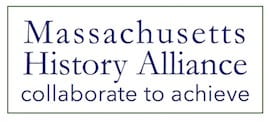University Archives and Special Collections in the Healey Library at UMass Boston is publishing the below essay, written by Judy Branfman around 1989, to both announce the launch of new digital collection area and to promote Transforming a City: Honoring Boston’s Visionaries, an event being held on Saturday, October 19, that will bring people together from all over Boston to celebrate the lives and legacy of community activists Mel King and Chuck Turner.
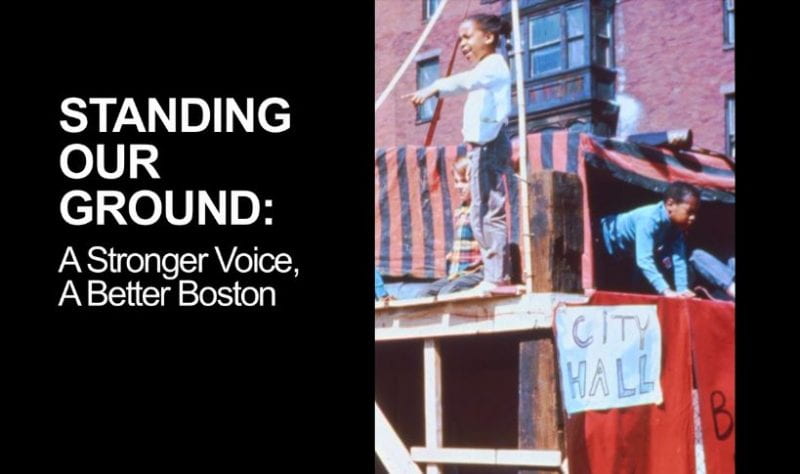
View the “Standing Our Ground” slideshow, narrative, and transcription.
The new digital collection area is inspired by (and named after) Standing Our Ground, the important slideshow that was directed by filmmaker Judy Branfman and produced by Branfman and UMass Boston Professor Emerita Marie Kennedy to explore Boston’s rich and creative history of neighborhood struggles over land control and development, and the growth of empowerment and local control. The only item in the collection at this point is the Standing Our Ground film, but we expect to post more materials to the site soon, including interviews, videos of public meetings, and other recordings from the 1970s and 1980s related to Tent City activism in Boston’s South End. Explore this digital collection area and view Standing Our Ground.
University Archives and Special Collections holds a range of materials that help to document the history of housing, community development, and land use and planning activism in Boston. This digital collection will provide researchers and community members with access to unique archival materials related to this history.
Standing Our Ground: Community Media and the History of Neighborhood Control of Development in Boston
Guest essay by Judy Branfman
Note: This essay about Standing Our Ground and Branfman’s work with the Coalition for Community Control of Development was originally written around 1989.
“You’ve got to fight or you don’t get anywhere. If you fight for something you believe is right, then fight for it! Don’t sit back and say, ‘Oh, I could have done it, but now it’s too late.’ You gotta do it. You can win or you can lose, but at least you tried.”
-Anna DeFronzo, East Boston community activist

View the “Standing Our Ground” slideshow, narrative, and transcription.
For thousands of Boston residents – especially East Boston residents – Anna DeFronzo’s fighting spirit and history of activism have been an inspiration since the early 1960s (Anna DeFronzo died in 1998). At the same time that Anna and her neighbors were struggling to stop Logan Airport’s expansion into their East Boston neighborhoods, similar struggles were taking place in other parts of Boston, particularly where Urban Renewal plans were taking a heavy toll. In those areas as well, particularly the South End area, committed activists and creative struggles evolved and broke new ground for people in communities seeking to have some control in shaping their lives and surroundings.
The same issues that in the 1960s and ‘70s brought whole communities into the streets and meeting rooms – demolition of neighborhoods and destruction of communities, racism, the pursuit of community-based development, etc. – have continued, often in more sophisticated forms, to be crucial and largely unresolved issues for Boston residents. But through the years, activists from Boston’s many and extremely diverse neighborhoods have built on each other’s work. And over the last couple of years neighborhood activists and groups have begun to come together to share their knowledge and struggles – and attempt to develop strategies for working together on common issues. The Coalition for Community Control of Development (CCCD) is one outcome of this coming together – a growing coalition of over 25 neighborhood organizations from across the city. CCCD is working on both legislative and grassroots initiatives in order to strengthen the voices of Boston’s neighborhoods.
I became involved with CCCD in 1988 because of my interest in working with that broad coalition working to address community development issues. My experience working in the neighborhood group in my isolated and gentrifying area taught me that we could never fully accomplish our goals working on our own in deeply divided and politicized Boston. Also as an activist artist and educator, I had a strong interest in developing some kind of artistic collaboration that could further the community control work.
What emerged after several discussions was the idea of developing a slide show that would look at the past and present of the struggle for community control of development, drawing on the voices and stories of activists who had helped shape those struggles.
The project in part emerged out of – and merged with – a series of neighborhood oral histories being collected by Rainbow Coalition members and urban planner Marie Kennedy for a large historical exhibition honoring South End activist Mel King on his 60th birthday. The slide show process began with a letter that was sent out to more than 500 neighborhood groups and activists inviting their participation – and to date has involved artists with a variety of skills, planners, historians, educators, activists, and donations of numerous services.
Visual images are powerful and evocative tools, although they are often left behind by organizers and educators, often for understandable reasons. In the case of “Standing Our Ground,” the real strength, along with the organizing process itself, lies in the images combined with stories heard in the activists’ own voices.
The goals of the project have been: to develop a process, educational in itself, which would bring people together to share their stories (15 voices are heard in the show) and participate in developing the slide show; to pass on a history that in reality is little known – and that can be seen within the context of growing community empowerment; and to develop an educational program that raises relevant questions for use by CCCD and other groups and institutions. Another hope was to try and place land control struggles – and the idea of community development – within the realm of people’s everyday experience, and try and look at the relationship between the two.
As Chuck Turner, Director of the Center for Community Action in Roxbury, says in “Standing Our Ground,” “The question is, how does community development enhance human development? Does the building of a new structure necessarily contribute to people’s feeling a renewed confidence in their own ability and creative potential and future in their neighborhood?”
Note: This essay about Standing Our Ground and Branfman’s work with the Coalition for Community Control of Development was originally written around 1989.
 Learn more about Transforming a City: Honoring Boston’s Visionaries, an event being held on Saturday, October 19, that will bring people together from all over Boston to celebrate the lives and legacy of Mel King and Chuck Turner. Reserve tickets here.
Learn more about Transforming a City: Honoring Boston’s Visionaries, an event being held on Saturday, October 19, that will bring people together from all over Boston to celebrate the lives and legacy of Mel King and Chuck Turner. Reserve tickets here.
About Judy Branfman
Judy Branfman, Research Affiliate with the UCLA Institute for Research on Labor and Employment, is a documentary filmmaker, activist, and independent scholar based in Los Angeles. She is working on a documentary, The Land of Orange Groves & Jails, and book on the precedent-setting court case, Stromberg v California. Since 1980 Judy has worked with non-profit organizations, cultural projects, labor unions, and municipalities doing outreach and education, media, and project development and coordination. She has taught Los Angeles history courses at UCLA – and produced large community-based events focusing on LA’s multi-ethnic, labor history.
University Archives and Special Collections in the Joseph P. Healey Library at UMass Boston collects materials related to the university’s history, as well as materials that reflect the institution’s urban mission and strong support of community service, notably in collections of records of urban planning, social welfare, social action, alternative movements, community organizations, and local history related to neighboring communities.
University Archives and Special Collections welcomes inquiries from individuals, organizations, and businesses interested in donating materials of an archival nature that that fit within our collecting policy. These include manuscripts, documents, organizational archives, collections of photographs, unique publications, and audio and video media. For more information about donating to University Archives and Special Collections, click here or email library.archives@umb.edu.
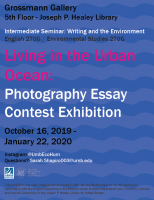


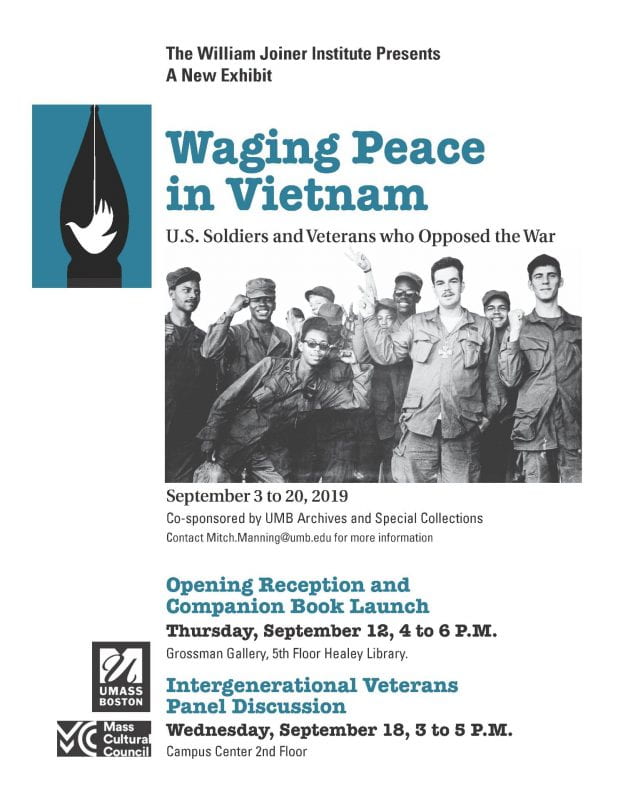
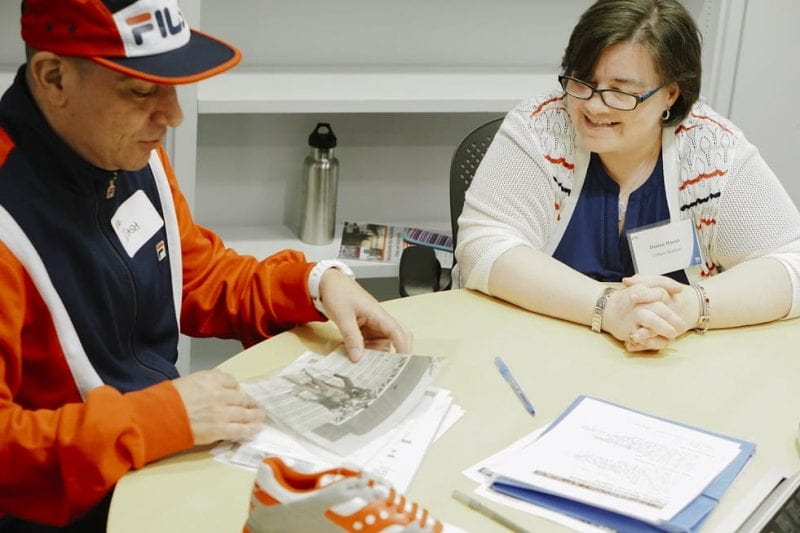


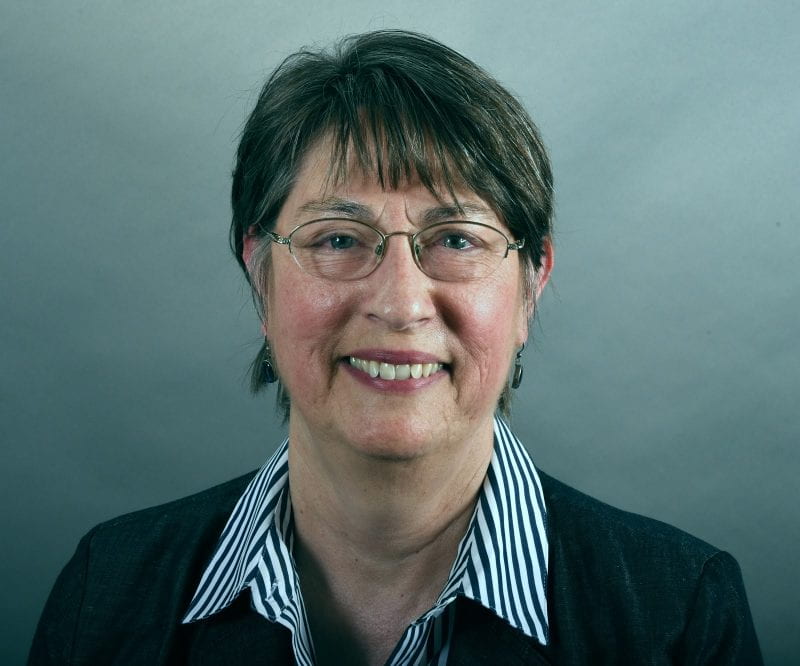 University Archives & Special Collections in the Healey Library is so proud to announce that the
University Archives & Special Collections in the Healey Library is so proud to announce that the 